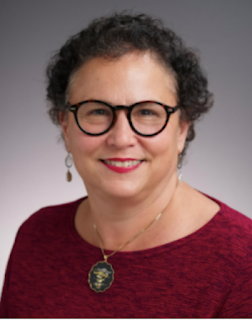November 18, 2022 Thanksgiving Issue
Editor’s Corner
Gratitude – Who’s Got Time for Gratitude?
(AND A RECIPE FOR DATE-FILLED SUGAR COOKIES!)
By Jeff Fritz, PhD
As we all head into this season of Thanksgiving, Dr. Fritz celebrates the wonderful benefits of being grateful and offers some ideas for developing habits of gratitude ...
I hate to admit that I suffer from a strong case of what can be termed as negativity bias. Put simply, I tend to overly focus on the negative and use remembering negative information as a protective habit to avoid pain in the future. It’s a cognitive bias and amplifies the power of losses compared to the power of pleasure obtained from gains. Maybe it is why some coaches over time will state that the losses hurt more than the wins, even when the wins are many and the losses few.
My negativity bias tends to shine when I’m overly busy and plays out in my impatience with interruptions. Yet as an educator, life is all about stepping into and welcoming many interruptions as an opportunity to teach and learn. Someone stating, "I have a question,” can be viewed as either an interruption or an opportunity to engage.
Thankfully, one of my mentors suggested I try to flip this recording in my brain by focusing on gratitude and developing practices of gratitude. My mentor started the conversation by challenging me with, “What have you got to lose?”
Looking back on it, that was a smart move! It forced me to use my negativity bias against myself and challenged me to practice gratitude.
I encourage you to explore the research on the under-appreciated power of gratitude to transform our lives and our health. I explore three habits that could be practiced to develop gratitude:
- A gratitude journal
- Three gratitudes daily
- Random acts of kindness
A gratitude journal was not a huge success for me, but the practice of sharing with someone three things I was grateful for on a daily basis worked well around the house. Personally, I found random acts of kindness a big help. Little things like holding a door for someone, serving in the moment to fill an easy need, or just saying thanks became a way to add a boost throughout my day.
Over time, I have begun to view interruptions in a more favorable light. While this may sound strange, I sort of look forward to interruptions as ways to explore new opportunities or deepen friendships. I was reminded by a dear friend to never let a good crisis go to waste. What an amazing way to transform a major interruption into an opportunity to practice gratitude and service!
Another reminder that recently came my way was that gratitude is a way we can show we care for others.
My three gratitudes for today:
- Fire Alarms
- The trust of the students I’ve been given the opportunity to serve as an instructor
- The staff support team at MCW-CW – they have repeatedly made me look so much better than I am, and I thank them for their initiative and energy to help us create team wins.
Grandma’s Date-Filled Sugar Cookies
Soft and Chewy Date-Filled Sugar Cookies - Oh My! Sugar High
I was also asked to share a favorite holiday recipe. Another difficult ask as I’m more frequently the recipient of the recipe than the person following the recipe to produce something amazing. I should have mentioned that I’m really grateful for all those amazing people daily transforming ingredients into outstanding meals. Regardless, one of the holiday favorites that took a while to grow on me but I now look forward to each year around this time is Date Filled Sugar Cookies. It was my grandmother’s signature dessert that she only made during this season. While she refused to share her exact recipe this one comes close:
For further reading:
Vaish A, Grossmann T, Woodward A, Not all emotions are created equal: The negativity bias in social-emotional development, Psychol Bull 2008; 134:383-403. https://psycnet.apa.org/doiLanding?doi=10.1037%2F0033-2909.134.3.383
Hamlin JK, Baron AS, Agency Attribution in Infancy: Evidence for a Negativity Bias, PLoS One 2014; 9(5):e96112 https://www.ncbi.nlm.nih.gov/pmc/articles/PMC4011708/
Jeff Fritz, PhD, is an Associate Professor in the Department of Cell Biology, Neurobiology and Anatomy and the Department of Regional Campuses, Central Wisconsin Campus. He serves as the Director of the Kern Scholars Program and is a member of the Student Pillar, Curriculum Pillar, Faculty Pillar and the Philosophies of Medical Education Transformation Lab of the Robert D. and Patricia E. Kern Institute for the Transformation of Medical Education.



